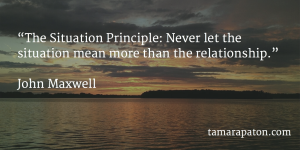

In 2009, I moved to a new city. Perhaps it was so small that you’d call it a town. To build my new professional life, I thought I might volunteer on a board or two.
There are 3 kinds of boards in the world:
1. Corporate, those that pay for your work
2. Non-profit, those that don’t pay for your work
3. Foundation, those that require you to pay for the privilege of doing work
Back then, I couldn’t find my way onto any of the above. I couldn’t even find one who would take my money. I was completely stymied by how to get on boards.
Everybody needs a first shot
I nearly gave up and moved onto other ideas, until I got an invitation. The nominations committee of a PR-weary foundation board found my thin CV fascinating. No one else wanted near the drama, so I got the job.
The next few years were challenging, but were exactly what I needed. I needed a first shot at becoming a board director.
Conventional wisdom only applies to the conventional
I am not a retired CEO or C-suite executive. I have never owned a P&L, let alone run a large division. I don’t have a fraction of the profile one typically needs to build a board career.
A lot of smart people are debating ways to bring more diversity to boardrooms. They warn against quotas and encourage disclosure guidelines. They point optimistically to diversity lists and every sign of progress.
Meanwhile, I make my living serving on boards. At 40 years old, I’m doing it years – decades even – before most would try. If a one-time middle manager like me can build a board career, what is holding you back?
How to get on boards? Take the next right step
Most of us can’t make a gig with a Fortune 500 board our first board seat. We can build to that point, however, if we start where we are and take the next right step.
That step is different for all of us. Offer your consulting services to a non-profit board. Observe your local hospital’s audit committee meeting. Invest in your development through a director education program (like this or this). Buy coffee for even the most remote contact in your network if that contact serves on a board. (Would you believe that my husband’s sister-in-law’s brother’s friend introduced me to my second board appointment?)
When I get discouraged on occasion, I reflect on why taking the next right step matters. Each time I do, I learn from truly remarkable people who are advancing the cause of good governance. Meeting new people was what prompted me to pursue board work in the first place. Our broader impact on social and economic empowerment sustains my motivation.
This is not going to be easy, but it doesn’t have to be hard. Seth Godin suggests that, “Opportunity is often where you decide it is”. I hope you decide it is here and now, and then do something unconventional.
What is your next right step?
If you found this post helpful please “Like”, “Share” and/or “Tweet” to your network.










